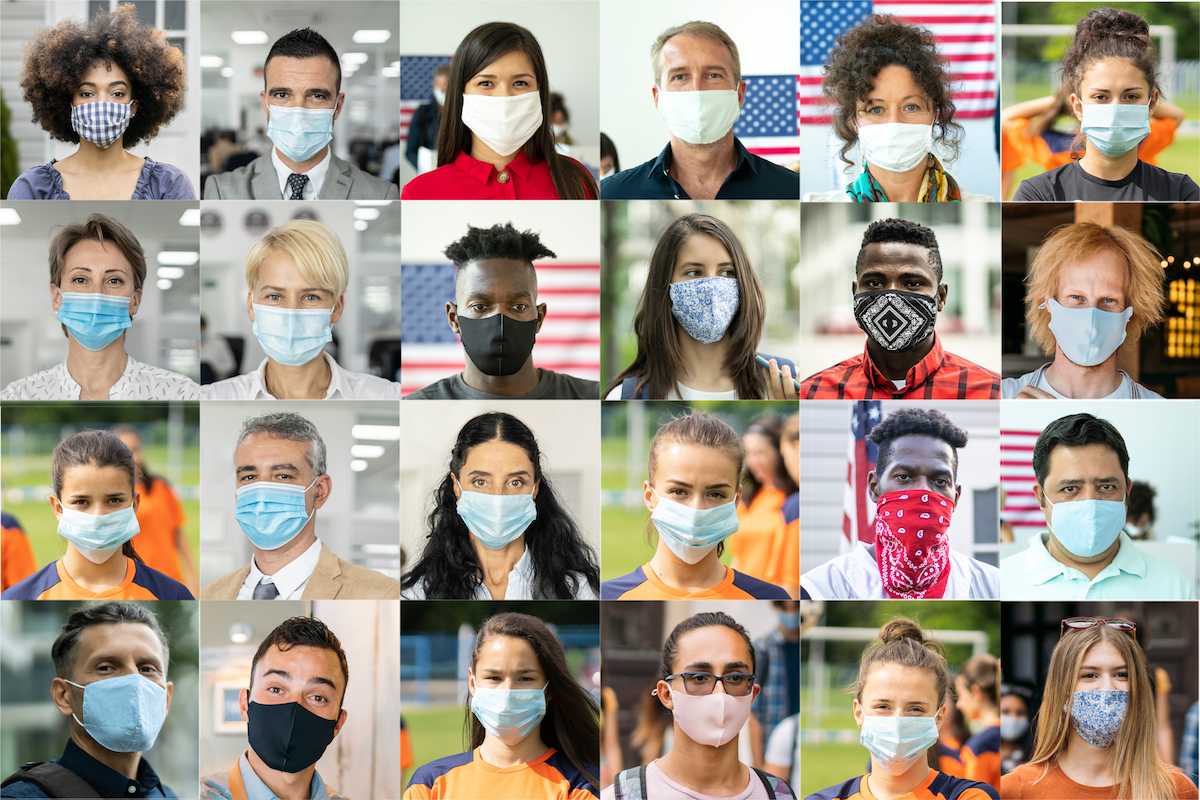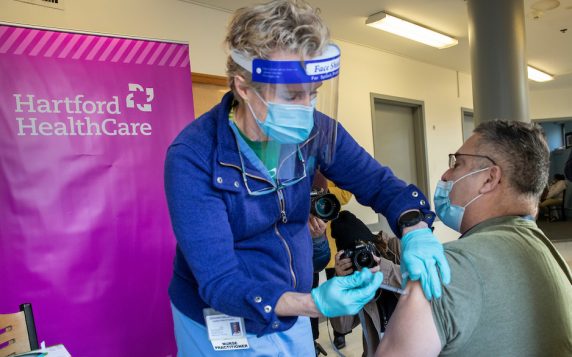Although few fully vaccinated American adults die from COVID-19, close to 78 percent of those who died after being infected with the virus have had at least four of eight risk factors associated with severe outcomes, according to a study published recently in the Centers for Disease Control and Prevention’s Morbidity and Mortality Weekly Report.
Here are the risk factors:
- Age 65 or older.
- Immunosuppression.
- Pulmonary disease.
- Liver disease.
- Chronic kidney disease.
- Neurologic disease.
- Diabetes.
- Cardiac disease.
The first four risk factors were associated with the highest odds of severe outcomes.
The study reviewed the 36 deaths among more than 1.2 million adults who completed their primary vaccination series between December 2020 and October 2021. Among the larger group, 2,246 (18 per 10,000 people) developed COVD-19. The 36 deaths were among 189 people (1.5 per 10,000) who developed a severe outcome.
“There are a lot of people out there with a significant amount of comorbidities,” said Dr. Ulysses Wu, Hartford HealthCare’s System Director of Infection Disease and Chief Epidemiologist, “whether it be cardiovascular disease, whether it be immunosuppressed from cancer autoimmune disease and even things like diabetes, obesity or even being overweight. These are all considered comorbidities.”
Severe outcomes were defined as:
- Hospitalization with a diagnosis of acute respiratory failure.
- Need for noninvasive ventilation.
- Admission to an intensive care unit (including anyone requiring invasive mechanical ventilation).
- Death (including discharge to hospice).
“The study was a cohort of 1.2 million who were vaccinated and 36 people (died), demonstrating the remarkable effectiveness of our vaccines,” said Dr. Rochelle Walensky, director of the the Centers for Disease and Prevention, said during testimony before a Senate committee earlier this week. “But no less tragic is the 36 people who (died) because of CVID-19 and that many had comorbidities — comorbidities that I’ve spent my career taking care of, comorbidities that just prior coming to the CDC we saw time and time again disproportionately impacting people with COVID-19.”
In Connecticut, state health officials estimate unvaccinated people have a 17 times greater risk of dying than the fully vaccinated from COVID-19 and a 3.3 times greater risk of testing positive for the virus.
The state and CDC define fully vaccinated as two weeks after completing a two-dose mRNA vaccine series (Pfizer-BioNTech or Moderna) or one dose of the Johnson & Johnson vaccine. A booster, however, remains the best way to minimize risk of severe illness.
“I asked nurses, ‘What can we do to improve the situation?” said Dr. Ajay Kumar, Hartford HealthCare’s Chief Clinical Officer, at a Jan 12 media briefing. “Two of the nurses came to me and said, ‘Please ask people to get vaccinated and boosters. We are seeing individuals who have gotten the vaccine and boosters have a very short length of stay — mild or less intense hospitalization — compared to people who have not had boosters or a vaccination.”



